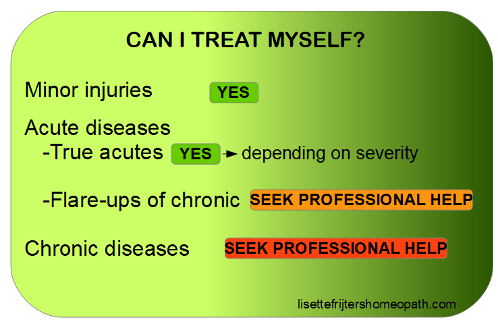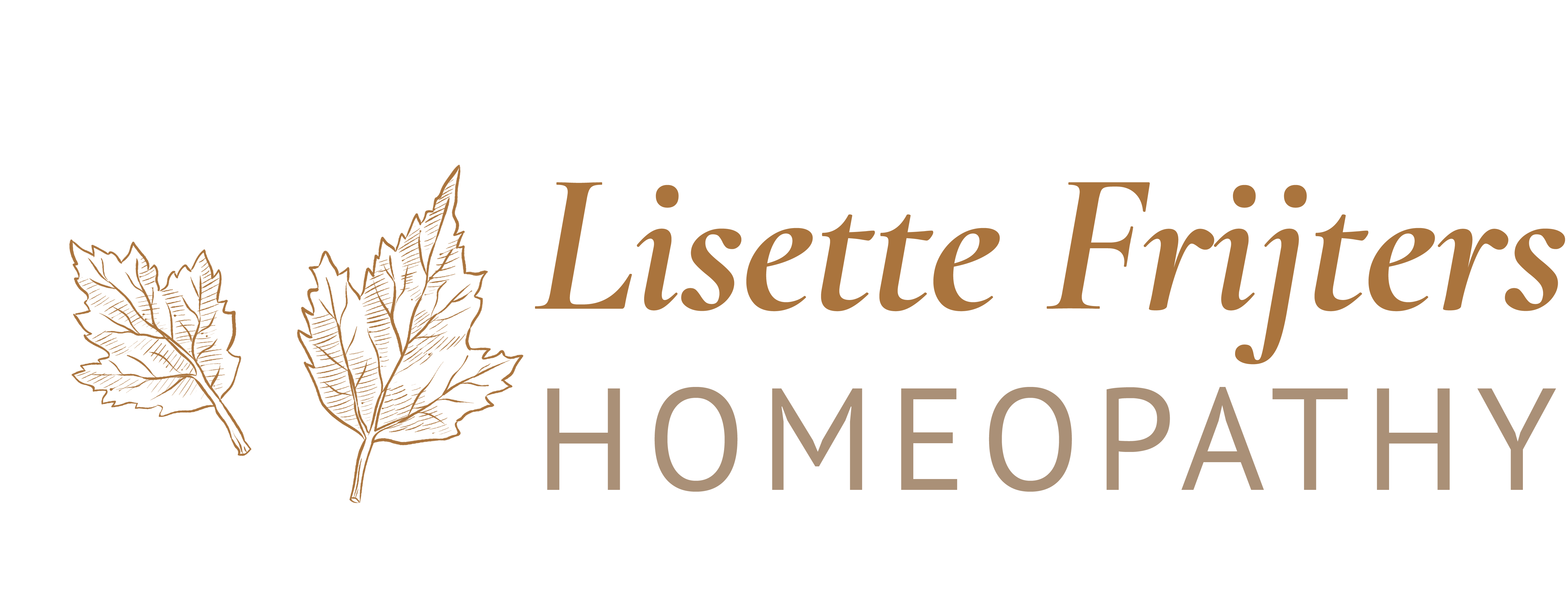
MINOR INJURIES: YES
-situations that arise due to accidents or other sudden occurences: examples are insect bites; burns; sport injuries, bruises, fractures, sprains; teething problems; trauma….
-always have a homeopathic first aid kit on hand
-it is easy to treat these yourself, it relieves pain and helps the body recover faster
-I recommend everyone to learn this as it can be so efficient
ACUTE DISEASES
1.Real acutes or nfectuous diseases: they are self-limiting, they have a prodromal period, a period where you are ill and then it resolves, unless in very severe situations.
Examples are influenza, measles, whooping cough, chicken pox and so on.
YES, DEPENDING ON SEVERITY
-This can definately be learned but it will take more skill then treating simple injuries.
-If the situation is bad or you don’t have the experience, seek professional help.
2.Acute flair-ups of a chronic state. For example you have asthma and now and then you have a serious acute cough. Or you have hay fever once a year or recurrent ear infections.
-This is the body’s way to try to overcome the chronic illness, so it is not a real acute.
-The body will always try to protect the most important organs and functions and throw out things from the inside out.
SEEK PROFESSIONAL HELP
These are more difficult to treat yourself unless you have a lot of knowledge about homeopathy.
If you are in treatment with a homeopath, you need to ask them for advice. Some homeopaths do not like that you treat yourself as that can disturb the chronic treatment a lot. In that case your homeopath will help you in the way that is best for you and your health.
If these acute states reoccur regularly, it is best to be treated by a homeopath who can prescribe a remedy to deal with the underlying chronic issue.
CHRONIC DISEASES
This is where homeopathy really stands out. These are diseases that were there for a long time or recurring regularly. These diseases will not resolve by themselves and need treatment. If not treated they become worse and make the person sick at a deeper level. Examples are numerous and can go from recurrent coughs, chronic pain, arthritis to chronic anxiety, depression, autism and so on. This is work for a professional homeopath.
SEEK PROFESSIONAL HELP
Why?
In chronic disease, a homeopath works towards removing the root cause of the problem rather then palliating or suppressing symptoms by treating them individually. Proper management of the case which can go over months or years is really important, to make sure that the healing works in an outward direction. Treatment can be done alongside regular medication. For diagnosis and tests, you will need to see a medical doctor.
Read more about the difference between acute and chronic disease HERE

